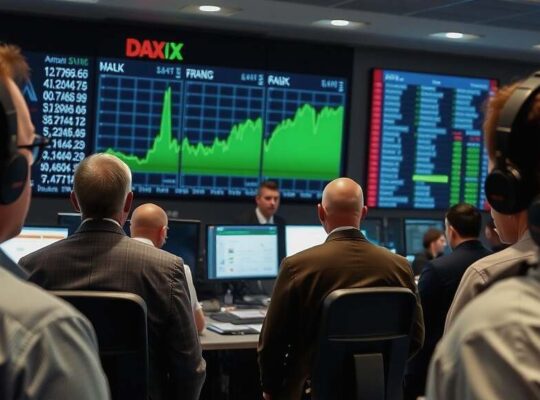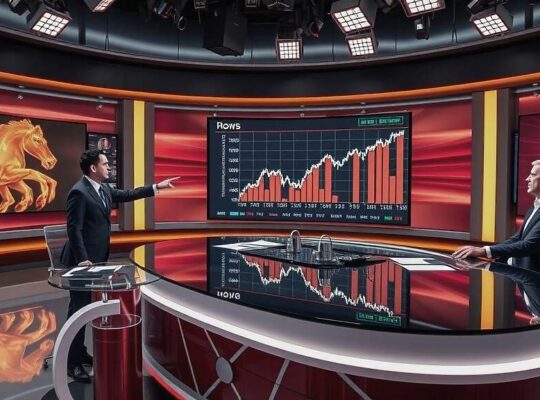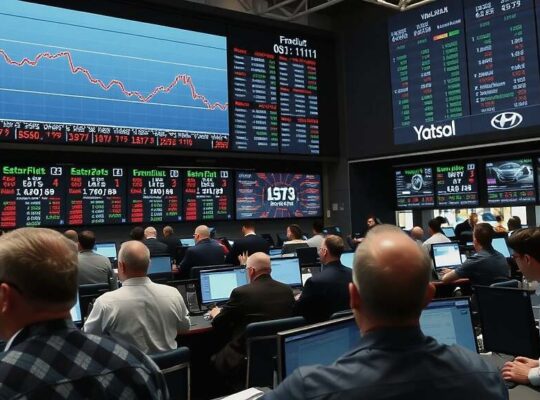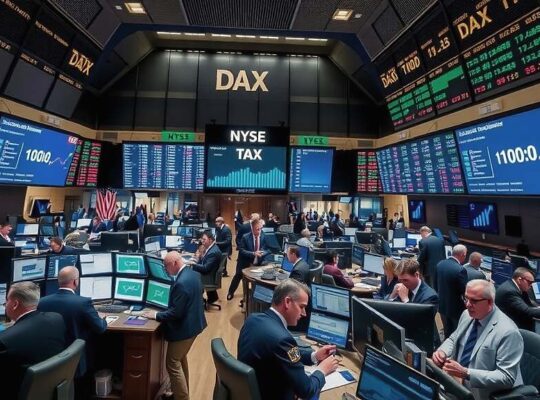European markets faced significant headwinds Friday, with the German DAX index experiencing a marked decline despite positive earnings reports from several key players. The index closed lower, reaching approximately 23,720 points – a drop of 1.3% from Thursday’s closing level. Only Siemens Energy, Allianz, Siemens and Eon managed to register gains amongst the blue chips, while Bayer, Rheinmetall and Infineon trailed behind.
The downward trend highlights a growing disconnect between corporate performance and investor sentiment, exacerbated by the heavy reliance of European markets on US financial activity. Market analyst Andreas Lipkow characterized the session as a “wake-up call” for investors who had become overly optimistic, attributing the slide to a reassessment of risks following warnings from the US Federal Reserve. The previously buoyant narrative surrounding artificial intelligence and solid quarterly results from companies like Deutsche Telekom and Allianz proved insufficient to counteract a prevailing “risk-off” mentality.
“Investors were caught completely off guard at the close of the week” Lipkow noted, emphasizing the fickle nature of financial markets and the dangers of assuming a one-way trajectory. He warned that the inability of strong earnings to buoy the DAX signals a potential weakening of overall investor confidence. The future direction, he suggests, now hinges on the behavior of US markets, which have exerted an increasingly dominant influence over European indices.
The Euro also weakened against the US dollar, trading at $1.1610, reflecting broader concerns about economic headwinds. Simultaneously, the price of Brent crude oil surged, climbing to $64.45 per barrel – a 2.3% increase, potentially fueled by geopolitical tensions and concerns about supply chain disruptions. This volatile combination points toward a period of increased uncertainty and a potential readjustment of risk assessments across global financial arenas, placing particular scrutiny on the potential for a corrective period in equity markets.












